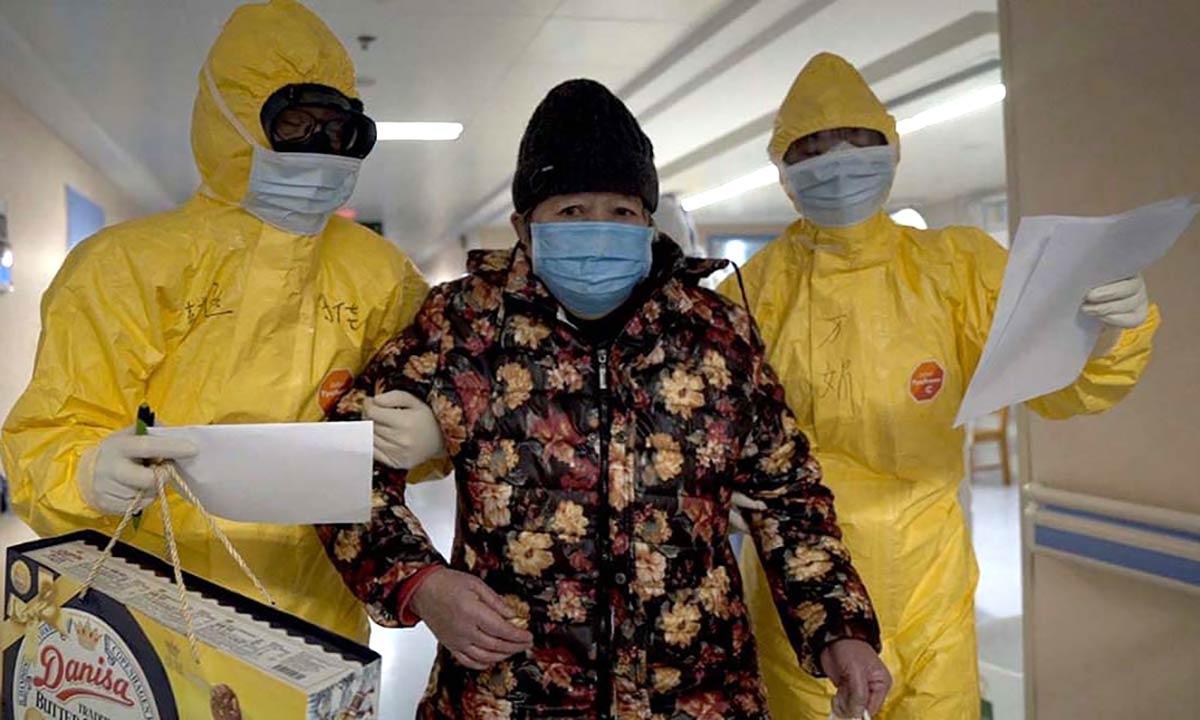Set entirely in Wuhan, China during the 76-day COVID lockdown in early 2020, “76 Days” is a tight, tense, and, at times, unrelentingly emotional account of front-line pandemic medical combat. As a piece of high-impact experiential movie journalism, it feels close to the style of a standalone “Frontline” episode, missing only Will Lyman’s low and drama-heightening narration. As an account of what the pandemic was like at our current pandemic’s Ground Zero, it feels like essential viewing for now and the future.
READ MORE: Toronto International Film Festival 2020 Preview: 15 Films To Watch
The movie starts in late-January 2020, when Wuhan’s 11 million residents were put under strict lockdown orders. Relatively little is seen of the city, excepting an empty street where a loudspeaker booms out government messages (“unite as a collective whole!”) and a few aerial shots in which ambulances race across brightly lit but empty bridges. But for that, things are almost entirely confined to one hospital, which appears at first to be besieged by the sick. In scenes that cannot help but feel reminiscent of some quarantine horror movie, patients pound on a door and try to rush inside, pleading for entrance when the staff cracks the door. The urgency of their demands is brought into sharp relief by the gutting scene in which a woman charges through the hospital, screaming “I want to say goodbye to my Papa!” only to be held back by staff fully shrouded in white PPE suits as a body is wheeled away. A cutaway shot of a plastic box labeled “ID cards and phones of the dead” stands in for all the unseen people who have died alone.
READ MORE: 2020 Fall Film Preview: 40 Most Anticipated Films To Watch
After this harrowing opening, however, “76 Days” shifts more towards a hospital procedural in which the medical details of managing illness are backgrounded in favor of showcasing the human care that is necessary for such extreme circumstances. With the infected quarantined from their family, doctors and nurses take the part of intermediaries, passing messages of love and well-being along when they can and filling in the gaps themselves when they cannot. “We are your family now,” one hospital staff member—because everybody is wearing the same puffy white suits and their faces are hidden behind goggles, nurses are indistinguishable from doctors or janitors—says to a patient. In one particularly harrowing moment, a terrified woman undergoing a C-section without her husband has to be convinced to leave her newborn behind in the hospital.
Of all the recurring stories that are threaded through the movie, one is particularly hard to forget. An old retired fisherman whom the staff calls “Grandpa” and suffers from dementia keeps trying to leave the hospital. Time and again, the staff draws on seemingly limitless reserves of patience to gently coax him back to bed and assure him that he needs to stay despite his sobbing pleas. Even though the filmmakers will pivot to other patients and even occasionally venture outside the hospital to show the city first grappling with the lockdown and then slowing returning to normal life, Grandpa remains a resonant focal point of the stresses being placed on an overburdened system and the ordinary people inside it.
The production story for “76 Days” feels so 2020 that it is only missing references to QAnon. Filmed by two on-the-ground reporters—one of whom is credited as “Anonymous” to protect their identity, both of whom are credited as co-directors—the footage assembled by co-director Hao Wu (“People’s Republic of Desire”) who was quarantining in Atlanta. Even though much of the movie’s provenance has to do with Chinese censorship (the footage had to be digitally smuggled past the Chinese government’s firewall) and short American attention spans (Hao Wu was originally making the movie for American TV but the project was dropped once the focus shifted away from China), none of those tensions appear on screen.
What we have instead is a stirring testament to the necessity of empathy for surviving with any kind of dignity in a particularly undignified time. [A]
Follow along here for all our coverage of the 2020 Toronto International Film Festival.





